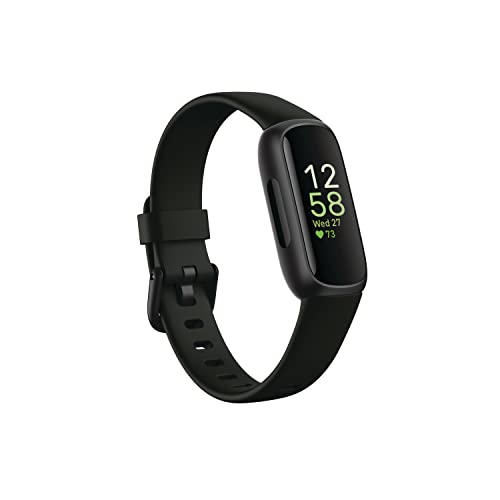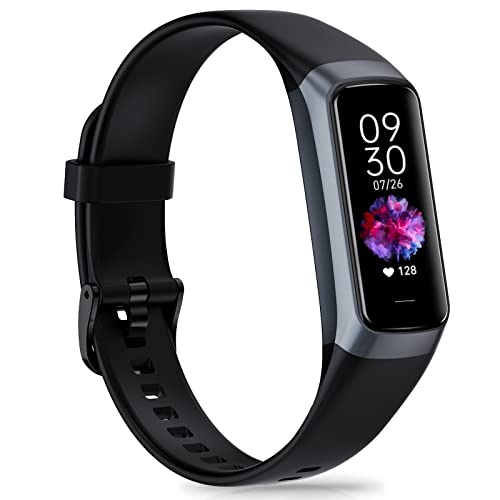Many users rely on the Fitbit Inspire 2 to monitor their sleep patterns and gain insights into their health.
Understanding how this sophisticated device tracks sleep can help in identifying why it might miss recording some sleep stages.
The Inspire 2 uses heart rate and movement data to give users a comprehensive view of their sleep architecture, including light, deep, and REM stages of sleep.
However, there may be instances when the Inspire 2 fails to track sleep accurately or at all. Troubleshooting steps like ensuring the heart rate feature is enabled and wearing the device correctly can resolve issues.
Additionally, Fitbit regularly updates its devices and app to enhance functionality like sleep tracking, which requires users to keep their device updated with the latest firmware.
Key Takeaways
- The Fitbit Inspire 2 uses heart rate and motion data to track sleep stages.
- Correctly wearing the device and keeping features enabled is crucial for accurate tracking.
- Regular updates to the Fitbit system can improve sleep tracking accuracy and add new features.
Understanding Sleep Tracking on Fitbit Inspire 2
The Fitbit Inspire 2 utilizes advanced sensors and algorithms to track your sleep stages and provide a comprehensive sleep score. This data helps you understand the quality of your rest and the factors that may affect it.
How Sleep Tracking Works
Your Fitbit Inspire 2 tracks sleep by using accelerometer data to detect movement and an optical heart rate sensor to gauge your heart rate variability. Together, these insights help differentiate between being awake and different stages of sleep.
- Movement is evaluated to detect periods of restlessness or wakefulness.
- Heart rate patterns reveal changes in sleep stages by monitoring your beats per minute.
For accurate tracking, ensure your Fitbit is:
- Worn snugly on your wrist.
- Charged sufficiently to last the night.
- Synced with the latest firmware updates.
Understanding Sleep Stages
The Inspire 2 records sleep in four stages, each identifiable by specific physiological criteria:
- Awake: Brief awakenings throughout the night.
- REM (Rapid Eye Movement): The stage associated with dreaming, crucial for memory consolidation.
- Light Sleep: The stage that helps with mental and physical recovery.
- Deep Sleep: The most restorative stage, important for immune function and physical recovery.
Your sleep data, combined with heart rate variability, is processed to produce a Sleep Score on a scale from 1 to 100. This score helps you understand your overall sleep quality. The Fitbit app displays your sleep data and sleep score to give you a complete picture of your night:
- Sleep Score Breakdown:
- Duration: Time you spent in each sleep stage.
- Restoration: Assessed by the quantity of Deep Sleep and REM, and heart rate data.
- Regularity: Sleep and wake-up time consistency.
The Sense feature is not applicable to Inspire 2; it belongs to a different product line of Fitbit with more advanced health tracking capabilities.
To obtain accurate sleep data, ensure your Inspire 2 firmware is up to date and that the device’s battery is adequately charged before going to bed. Regularly checking for updates and maintaining your device will help keep track of your sleep patterns effectively.
Troubleshooting Sleep Tracking Issues
When your Fitbit Inspire 2 fails to track sleep, addressing sync issues and performing a reset can often resolve the problem. Ensuring data connectivity and operational integrity of your device are essential.
Sync and Connectivity Problems
Your Fitbit Inspire 2 relies on syncing data accurately to provide sleep tracking details. If you’re experiencing issues, check the following:
- Ensure Bluetooth is enabled on your phone and the Fitbit app is running in the background for proper sync.
- Verify your device’s firmware is up-to-date, as an older firmware may have bugs fixed in newer releases.
- For sync to function, your Fitbit should be within 30 feet of the phone or tablet it’s paired with.
- If problems persist, reach out to Fitbit Support for assistance or check the Fitbit Community for similar issues and solutions.
Restarting and Resetting Your Device
Sometimes a simple restart can fix minor glitches with your Inspire 2:
- Go to the Settings app on your Fitbit.
- Scroll down to ‘About’ and select ‘Restart Device’.
If a restart doesn’t work, consider a factory reset:
- Go back to the Settings app.
- Tap on ‘Device Info’.
- Choose ‘Clear User Data’ to reset.
Remember, a factory reset will erase all data on the device, so use it as a last resort. After a restart or reset, set up your device again and check if sleep tracking resumes normal function.
Optimizing Fitbit Inspire 2 for Accurate Sleep Tracking
For precision in sleep tracking with your Fitbit Inspire 2, it’s essential to focus on the correct way to wear the device and proper maintenance. Accurate data depends on these critical factors.
Wearing Your Fitbit Correctly
To ensure the Fitbit Inspire 2 tracks your sleep accurately, wear the band snugly on your wrist. The band should be tight enough to maintain constant contact with your skin but still comfortable. If the fit is too loose, it can impede the heart rate sensor and result in inaccurate sleep data.
- Positioning: Place the Fitbit higher on your wrist, roughly a finger width above your wrist bone.
- Tightness: The band should be secure but not so tight that it restricts circulation or causes discomfort.
Maintaining Your Device
Keeping your Fitbit clean and undamaged is crucial. Regular maintenance prevents build-up that can obstruct the heart rate sensor, affecting the tracking accuracy.
- Cleaning: Gently wipe the band with a damp cloth and dry it thoroughly. Avoid soaps or abrasive cleaners.
- Device Inspection: Regularly check for signs of damage and ensure the heart rate sensor is unobstructed and clean.
By paying attention to how you wear the Inspire 2 and taking good care of the device, you can greatly improve the precision of your sleep tracking.
Advanced Sleep Features and Updates
Your Fitbit Inspire 2 is designed to provide detailed insights into your sleep patterns through advanced tracking features and regular updates.
Exploring Fitbit Premium Sleep Tools
With Fitbit Premium, you gain access to an expanded suite of sleep tools that can enhance your understanding of sleep quality and trends. One key feature, the Sleep Profile, offers a monthly analysis that could identify your sleep archetype, providing a deeper clue into your sleep habits. By examining your sleep stats closely, you can adjust your routines to better support restful nights.
Software and Firmware Enhancements
To maintain accuracy in tracking sleep patterns, periodic software and firmware updates are essential. These updates may include improvements to sleep sensitivity, allowing your device to more accurately detect the stages of sleep. When an update is available, ensure that your Fitbit Inspire 2 is charged and connected to the Fitbit app to automatically sync the latest enhancements. These improvements can refine the device’s ability to track sleep stats, ultimately providing you with a clearer picture of your overall sleep health.
Frequently Asked Questions About Fitbit Sleep Tracking
Why isn’t my Fitbit Inspire 2 tracking sleep?
There could be several reasons, including a low battery, incorrect placement on your wrist, outdated firmware, or a requirement for resetting the device.
What should I do if my Fitbit is not scoring my sleep?
Verify your Fitbit is charged, worn correctly, and synced with the app. Restart your device and update the app if necessary. Consistent heart-rate reading is essential for sleep tracking, so ensure your Fitbit fits snugly but not too tight.
How can I contact customer support for my sleep tracking issue?
For personalized assistance, contact Fitbit Customer Support through the official Fitbit website or app.
Can the Fitbit Inspire 2 track my sleep stages, such as light, deep, and REM sleep?
Yes, your Fitbit can track different sleep stages if worn throughout the night and you get enough consecutive hours of sleep to analyze
What is a sleep animal in Fitbit’s sleep profile?
The Fitbit sleep profile associates your sleep patterns with sleep animals like a tortoise or bear, each symbolizing the characteristics of your sleep behavior.
Is quality sleep score available on the Fitbit Inspire 2?
Your Fitbit provides you with a sleep score each morning to reflect your sleep quality, considering duration, restlessness, and the time spent in each sleep stage.
What mode should my Fitbit be in to track sleep?
Your Fitbit should be in its normal operating mode; it will automatically detect when you’re asleep. There’s no need to put it into a specific sleep mode.







